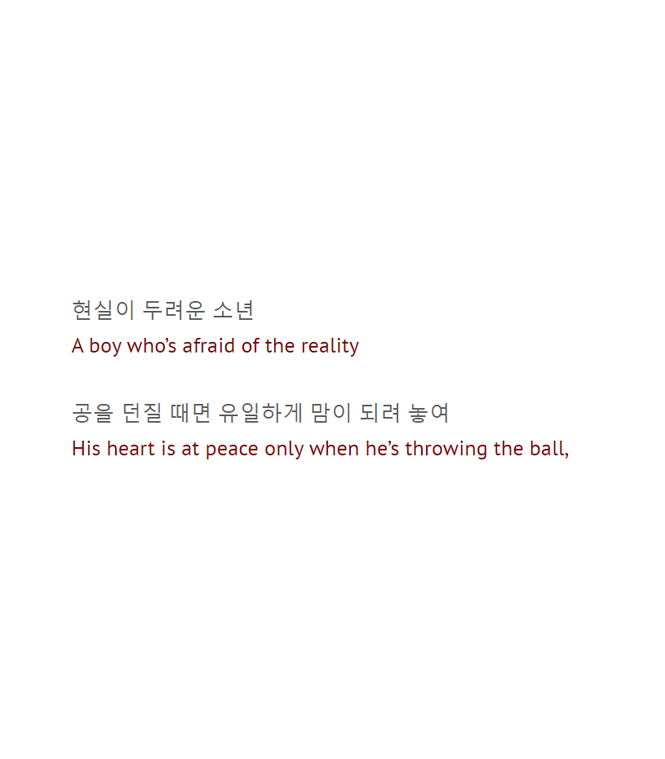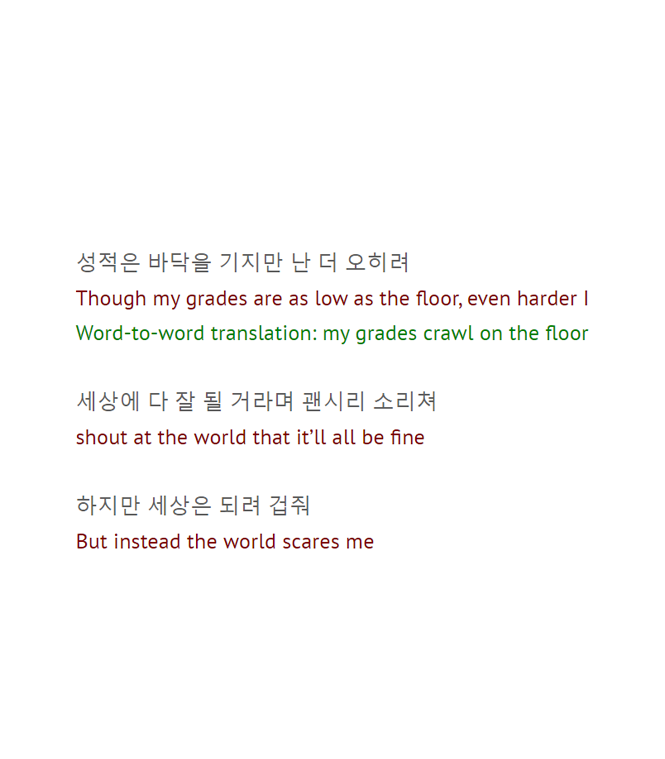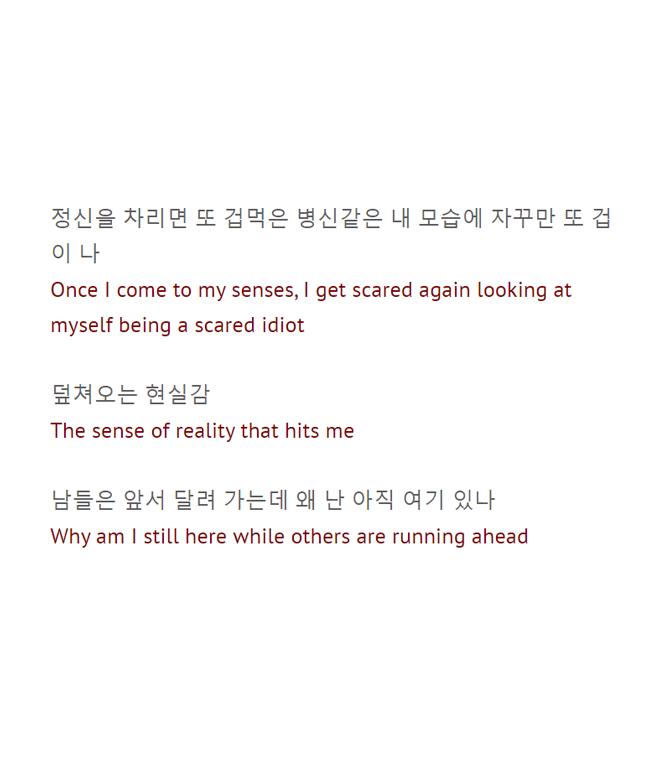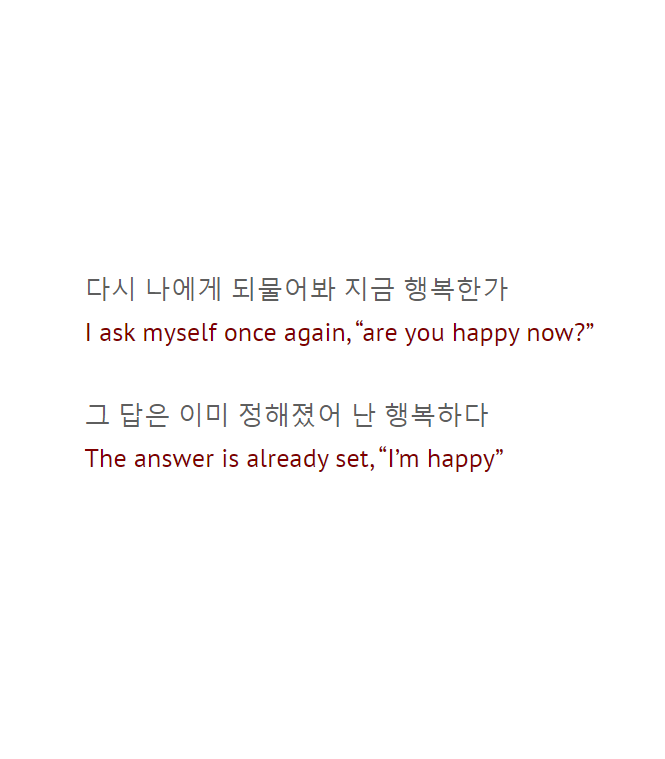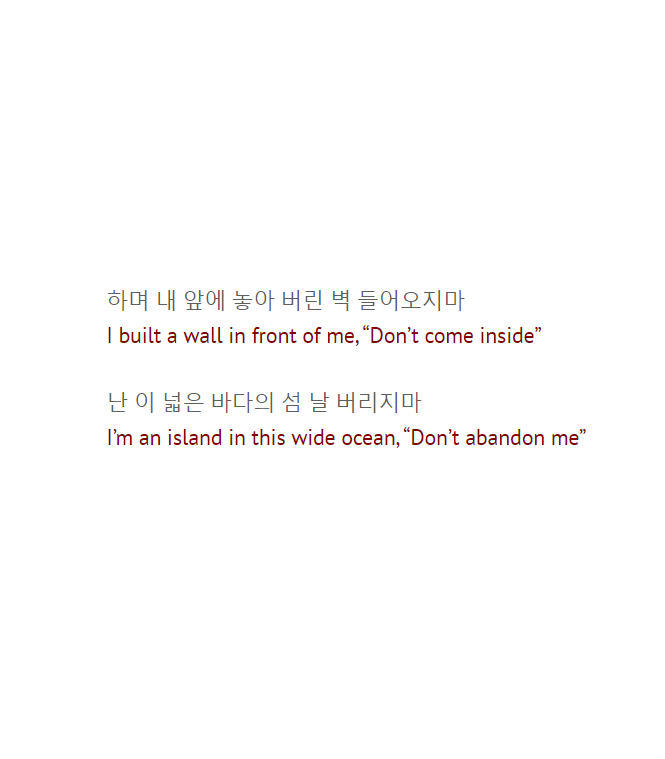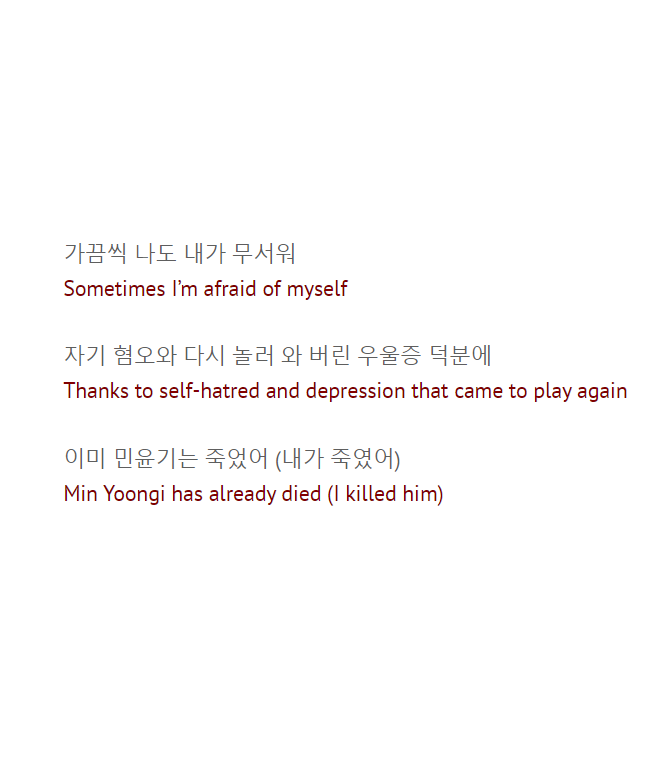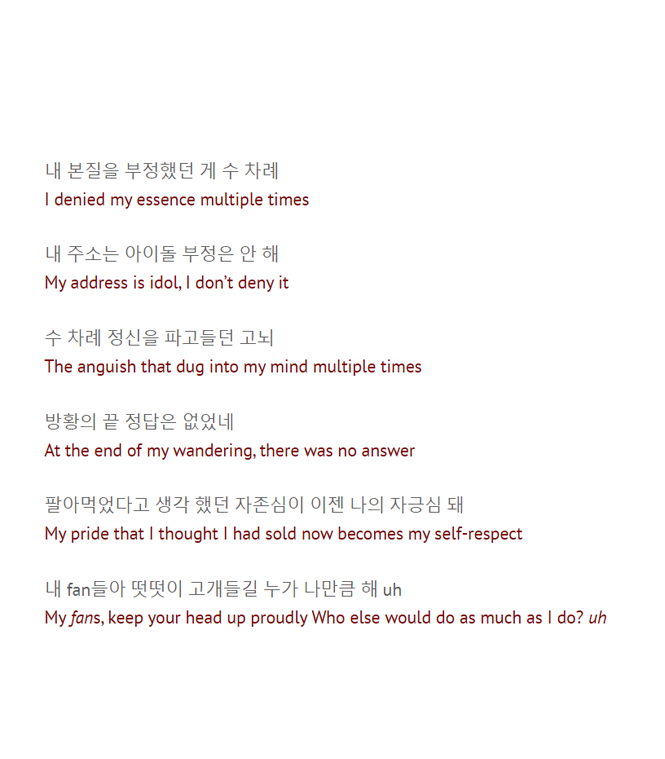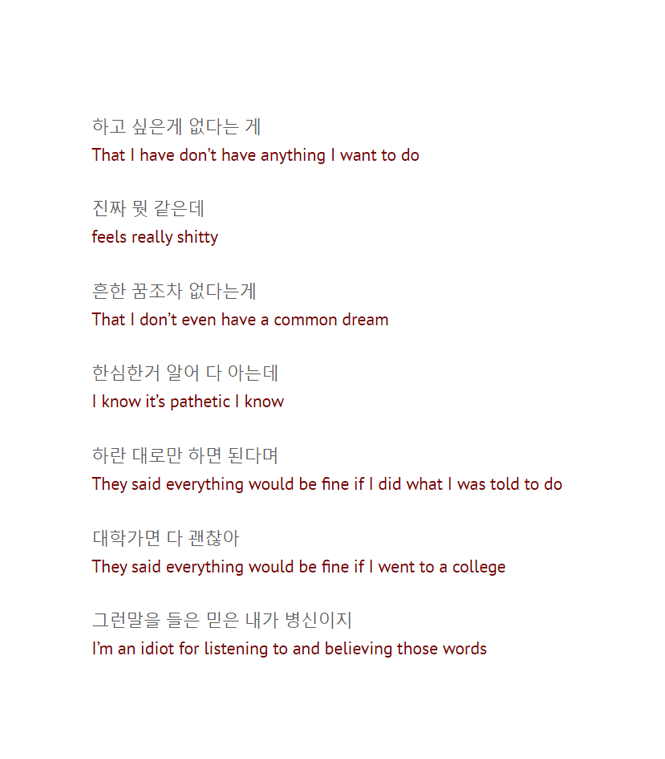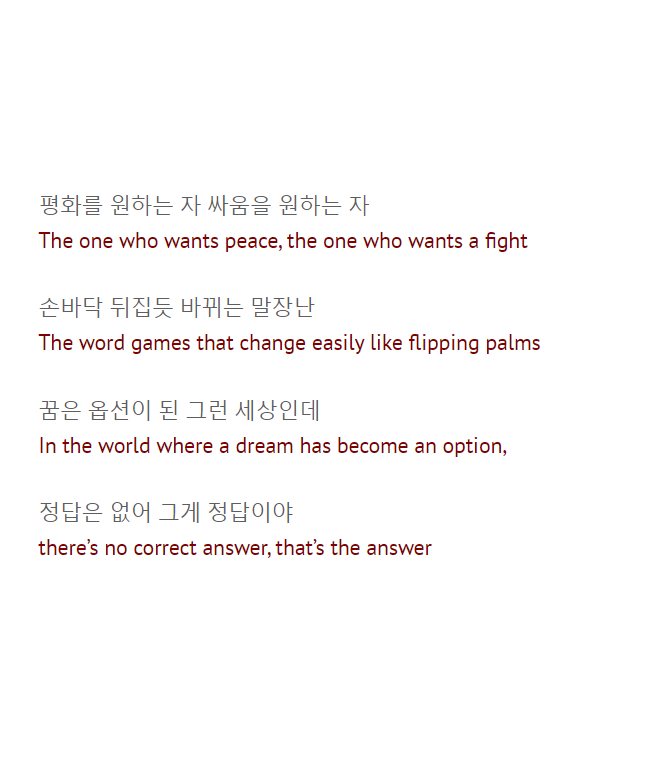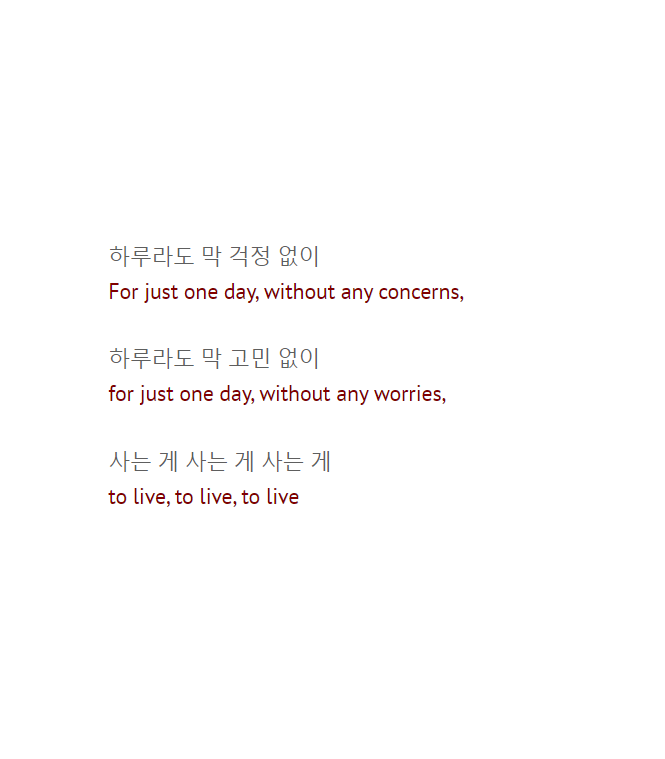Yoongi’s lyrics and their development – the self, society and isolation
Quick disclaimer: These are my interpretations of the lyrics exclusively and they come from the translated lyrics. I’m also not trying to put words in Yoongi’s mouth or saying my interpretations equal his original intentions. I& #39;m just trying to provide some insight!
When I do reference to something Yoongi has mentioned about the lyrics it’ll be stated clearly and I’ll post a picture of the interview/quote as well as a link to it at the end of the thread.
I used translations from @doolsetbangtan (best translation notes, I’m in love) primarily and supplemented them with Yoongi’s lives and interviews, but if you want really in-depth translation work also check out @ColinSH3 !
Let& #39;s get into it!
Yoongi deals with his own self a lot in his lyrics. Since the beginning of his songwriting, his persona is complex, complicated, tangled up in contradictions and progressions. When it comes to placing that persona in society, things get even more difficult.
Yoongi deals with his own self a lot in his lyrics. Since the beginning of his songwriting, his persona is complex, complicated, tangled up in contradictions and progressions. When it comes to placing that persona in society, things get even more difficult.
From Intro: HYYH onwards, Yoongi introduces us to a fear of reality, a fear of the world at large, of a society which is only calmed by pursuing his dream. He struggles to reconcile his dreams with the world, with the social standards that exist.
Intro: HYYH also speaks to the isolation of being left behind, or rather the fear of such isolation. This is, however, a time when Yoongi is still able to say ‘I’m happy’ making music, to give the listeners a realization of not needing the social standards to live a full life.
It’s quite a simple transition from worry and fear to self-acceptance and courage to pursue your passion regardless. However, we already see a struggle with society and the self exists, and the product of it is isolation.
Intro: Nevermind builds on this, but it addresses isolation as a side product of pursuing a dream with your everything. This is significant because it’s no longer only the isolation of the individual BY society, but the isolation of an individual FROM society.
It’s the willing refusal of a society who has only given you disdain and isolation from it so you can focus on your work and prove them wrong. In a lot of ways, this is him refusing to let society influence him, the isolation is just a side product.
Then we get to AgustD and suddenly the side product isn’t really a side product anymore. To start with, Yoongi’s identity here is more established. AgustD, the track, portrays the identity of an artist who’s not just an idol or underground rapper.
As we see in this interview, his identity is larger, and he accepts it as such. But it’s important to realise that AgustD also starts off with a mask of a ‘lunatic on the beat’, a strong artist who has survived the pits of hell in the industry and is thriving.
He’s still distinct from society – “different from those neglecting their duty”, a mutinous celebrity, but what sets him apart is his own morals, mental strength, the will to do things correctly and thoroughly.
He willingly makes this distinction again in Give it To Me, where he defines himself as a “public enemy” whom society is resentful of, because he wasn’t meant to succeed. This is the good side of the isolation – he’s distinct in a good way.
He doesn’t want to be part of that success which takes shortcuts. However, he also focuses on isolation as a lonely and destructive concept – he’s gone through the pro, the success he& #39;s gotten, but he wants to share the cons too.
This is a very important part of his songwriting - he& #39;ll give us two sides and let us think on them, even though here they are still based on his own experience whereas in Strange, for example, they& #39;ll be more general.
I think 140503 at dawn is probably the song that shows his view on this most directly. It’s a song that’s about Yoongi in relation to the world, his direct personal experiences phrased in a poetic way.
Whereas up to now we’ve been getting metaphorical statements in the two intros before AgustD, and direct biographical details in AgustD, this is a song that combines them both.
Yoongi talks about his inner experience rather than events that happened, which isn’t all that common on this mixtape in general, but something he uses a lot in the future. The song is defined by the first phrase already, followed by an elaboration.
There’s a disconnect from the world – he’s doing well, reaching the success he’s wanted, working for it, but because he’s had to isolate himself from society to do so, he’s developed sociophobia, his personal relationships have started fading.
What once used to mean freedom, the dorms and life pursuing music, is more like a prison. He’s forced to hide his isolation behind a mask, only exacerbating it. The distance between him and others is increased, but he has to pretend he is happy.
I think when we talk about pursuing your passion, this is a side that doesn’t get touched on often. The sacrifice required. Compared to the positive sides of isolation, this is a call for aid. It’s Yoongi showing us that no concept is all good.
Isolation especially, even in pursuit of passion, has its good and bad sides. Ultimately, Yoongi ends the song in a self-contradiction: he has too much pride to be seen as suffering but wants to keep people by his side, for which he needs vulnerability.
In The Last, the sociophobia and isolation evolve into a monstrous creature threatening to swallow him up. Staying isolated means there is no one to stop darker thoughts from trickling into your life, to stop your identity from fading away.
I think the peak of isolation and distance is the death of Min Yoongi. It’s the killing of yourself in pursuit of a passion, a dream, a success. When you lose family, friends, your identity – nobody knew Min Yoongi.
Yoongi gives a lot of insight into how it feels to battle these feelings – the need to be seen yet the need to hide all your troubles. A lot of it is placed on self-blame, seeing the self as the core of these distances and therefore the only one who can resolve them.
Something that particularly struck me, was that the song ended in hope regardless, in a reassurance you can overcome this state.
And the mixtape itself ends that way too. So Far Away is a strong where there is an initial barrage of insult at oneself for not having a common dream, for not fitting into societal beliefs even when trying. It’s a struggle to belong, to create a new identity and dream.
The desire to fly away is isolationist in itself, but then we also get hope for a better future turning sour mid-way where there’s a loss of relationships, the loneliness is growing and all he wants is for everything to vanish.
however! the end is still hopeful, which sheds light on Yoongi’s perception of such issues – he wants to retain hope, to keep to his dream and keep going, in hopes of a full bloom and a prosperous future, no matter where he stands.
It’s only when we get to First Love that we see more of that hope. First Love was based on the feeling of So Far Away, as Yoongi said, and it truly defines Yoongi in terms of music.
It’s a move back to a biographical structure, but it’s necessary to show that for Yoongi, music is a part of him, always there for him, even as he leaves and comes back, even as he’s isolated from everything else.
In the end, it’s about whether you want to lose a part of yourself or follow your passion and in that case, at least for Yoongi, it always come back to the piano (literally, first and last verse). Even if it means facing the downsides of it all, living through them.
The real reversal then, comes in Song Request and SUGA’s Interlude. Song Request recognises that music is his way of connecting with others, while Interlude accepts that all parts of himself are him, no matter how dark.
It’s an acceptance of the self, but also of a unique way of connecting to others. His experiences have shifted and his songs with them. The lyrics here are also a lot more metaphorical than in AgustD, as if metaphor sufficed, he doesn’t need to scream anymore.
In his verse in Eight he can then take the concept of an island, used in 140503 at dawn, a literal concept of isolation (insula – isola – island), and redefine it as a meeting place, something “both built” and no longer a lonely space.
In sharing memories, in sharing music and experiences, the isolation can fade at least momentarily, because that island that connects you to someone else is always there, the music that connects you is always there.
This basically sets the stage for D-2 both in terms of using metaphors and general situations over autobiographical detail, and in terms of the conceptual understanding of isolation, society, and the self.
The whole consideration of society first truly appears in Strange, but this time, instead of focusing on himself, Yoongi broadens the scope to all the people who somehow don’t fit in. That’s why he’s able to ask a question rather than show his life or judge.
He starts off by asking what you see in society. Is everything in dust, unable to be rebuilt? Is everything in dust as in we are all equal, from dust we come to dust we will return? Is everything in lust, corrupt?
The ambiguity allows for a development of two sides which start a train of thought on life and society – is life a pain, or is life happiness? We hadn’t really gotten questions before, but here Yoongi refuses to give us an answer.
He asks us to consider not only his experience or Namjoon’s experience but also our own experience with systematic societies, though they both end up giving us their own view of things.
The last lines of Joon’s verse are especially important because they show that there really is no correct answer. We all have our own answers. And here, Yoongi is really stepping away from the answers he was giving us in AgustD. It& #39;s our turn to think on this too.
There’s an increase in tolerance in terms of appraising the society, but also an expansion of vision on Yoongi’s part to include people who have had a different experience, not just his own story.
If Strange was about society, 28 and Burn It are about the self. 28 is a peaceful reflection on becoming an adult, on growing older. It specifically focuses on Yoongi’s perspective of the world and how it’s changed.
There’s still a lot of questioning – was getting to know the world good? What is my role in the world? Unlike in AgustD, even though this is a song about his reflections, Yoongi isn’t giving direct statements or detail.
There’s a lot of focus on the fading youth, even though there was no single grand change, he’s slowly come to be fine without grandiose dreams that would overwhelm him, that he would pursue so singularly.
He can appreciate the tiny things better for it, take more time to live for the sake of living alone, to form relationships. It’s a shift in focus from one dream to many tiny dreams that are more related to keeping him connected to himself and the world.
Burn It speaks on this too – on seeing a stranger in the mirror, someone who looks off and on needing to let some of that go so you can make space for a new self. It reminded of a zen koan about the overflowing teacup.
You can’t become a new self without letting some things go, and Burn It is that release. Though there is fear that by letting go of the past you will lose all of yourself or none of yourself, burn everything or nothing, letting go of it could also be seen as a rebirth.
Out of which a bright new sun is born. Giving up decisively is also courage, to set your past, yourself on fire, and watch parts of it burn away, takes a lot of courage.
And I think to sum it up, People is best. It really looks at how people will come and go, how your ordinary and special will be flipped, how nothing is everlasting, not relationships, not isolation. It’s a reassurance that this is just life.
Yoongi no longer wavers on isolation or society or himself specifically, rather he thinks on them in combination. There is tolerance for himself, but also for others, we all make mistakes and have regrets.
It’s a huge shift and it’s here that we see the happiness and hope he’s gained since 2016 come in. He also understands isolation and society can be overcome, but at the same time that they shaped him into the person he is.
In the end, what matters is having hope and living as fully as you are able to. There’s nothing wrong with failing or passing up opportunities or crying. If that’s how you live, how you live fully, then what about it?
Dear My Friend reinforces this – the loss of a friendship, the what could have been. But unlike before, there’s no blaming the self for the distance, it’s just something that was inevitable.
Even if there is regret and anger at the loss, it’s not something you should let eat into you – it’s natural that people change so much it becomes impossible to see the relationship and how it could ever work.
You step into a river, but it is never the same river twice. And it’s best to accept that, letting yourself live with the memories, but not dwelling on the loss.
Interviews used!
Marie Claire September 2016 (trans KIMMYYANG)
https://kimmy-trans.tumblr.com/post/149233312206/marie-claire-september-issue-2016-bts-sugas
TIME">https://kimmy-trans.tumblr.com/post/1492... Magazine interview
https://time.com/5839715/bts-suga-d2-mixtape/">https://time.com/5839715/b...
Marie Claire September 2016 (trans KIMMYYANG)
https://kimmy-trans.tumblr.com/post/149233312206/marie-claire-september-issue-2016-bts-sugas
TIME">https://kimmy-trans.tumblr.com/post/1492... Magazine interview
https://time.com/5839715/bts-suga-d2-mixtape/">https://time.com/5839715/b...
Stream AgustD https://abs.twimg.com/emoji/v2/... draggable="false" alt="🤍" title="Weißes Herz" aria-label="Emoji: Weißes Herz"> https://open.spotify.com/album/6GbiSEYL78RDLpxoxkWavo?si=BsPJ9-0OTuG3FVtZbYwSPw">https://open.spotify.com/album/6Gb...
https://abs.twimg.com/emoji/v2/... draggable="false" alt="🤍" title="Weißes Herz" aria-label="Emoji: Weißes Herz"> https://open.spotify.com/album/6GbiSEYL78RDLpxoxkWavo?si=BsPJ9-0OTuG3FVtZbYwSPw">https://open.spotify.com/album/6Gb...
find the rest of AgustD Week celebration here! https://twitter.com/yoongiteas/status/1292874000104923138?s=20">https://twitter.com/yoongitea...
this also an incredible thread if you want to read more about the reflection process in D-2  https://abs.twimg.com/emoji/v2/... draggable="false" alt="🌟" title="Leuchtender Stern" aria-label="Emoji: Leuchtender Stern">
https://abs.twimg.com/emoji/v2/... draggable="false" alt="🌟" title="Leuchtender Stern" aria-label="Emoji: Leuchtender Stern">
https://twitter.com/notesy25/status/1290211633621422080?s=21">https://twitter.com/notesy25/... https://twitter.com/notesy25/status/1290211633621422080">https://twitter.com/notesy25/...
https://twitter.com/notesy25/status/1290211633621422080?s=21">https://twitter.com/notesy25/... https://twitter.com/notesy25/status/1290211633621422080">https://twitter.com/notesy25/...

 Read on Twitter
Read on Twitter